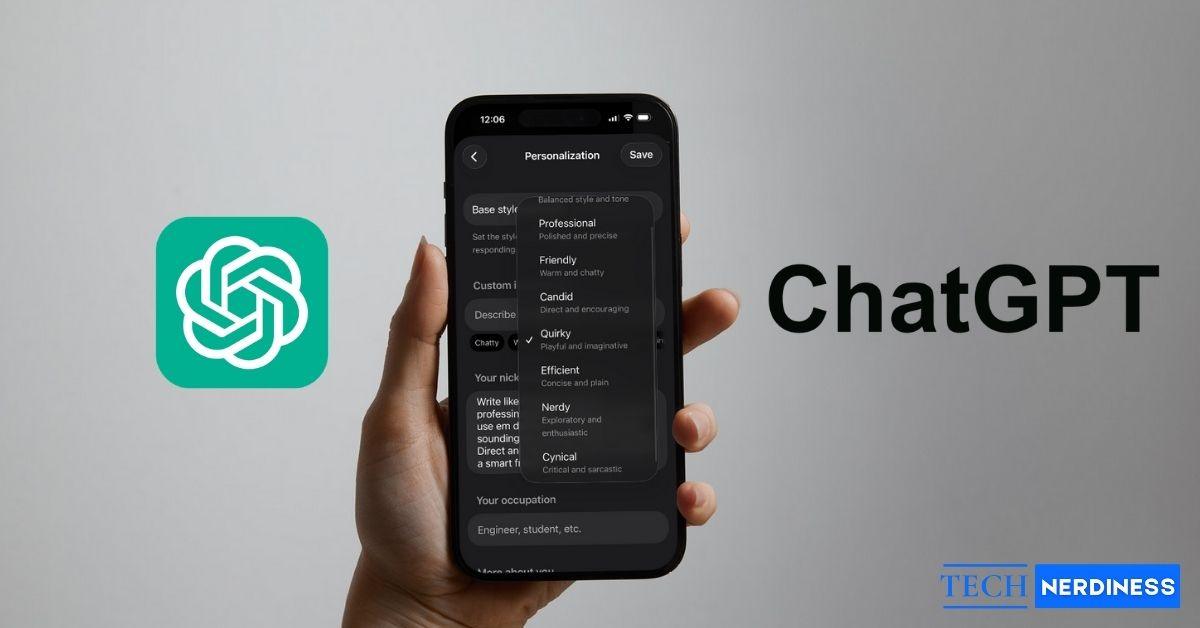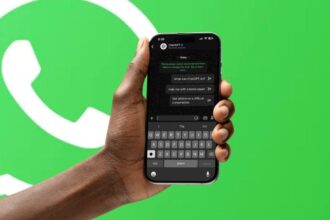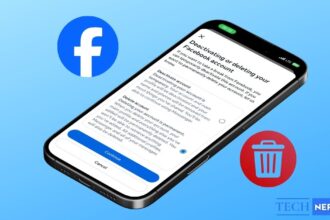Feels like ChatGPT replies are too long? Or maybe you don’t like the default quirky tone? The good news is you can customize ChatGPT to respond exactly the way you want. Instead of rewriting instructions in every chat like “be casual,” “keep answers short,” or “don’t use em dashes,” you can lock in your preferred style permanently, and ChatGPT will follow it every time.
OpenAI gives you multiple customization settings to adjust tone, level of detail, and personality. Each option offers a different level of control depending on how deeply you want to customize.
Customize Base Style and Tone on ChatGPT
This is the fastest way to change how ChatGPT sounds. You can switch between preset tones like Friendly, Professional, Efficient, Candid, Nerdy, Quirky, Cynical, and Default. Pick one, and ChatGPT instantly adapts across all chats. It’s perfect when you want consistency without explaining your tone every time. It’s available for all users, including those on the free plan.
On Mobile:
- Tap the menu icon at the top left corner.
- Select your profile icon at the bottom to open the Settings page.
- Choose Personalization from the Settings page.
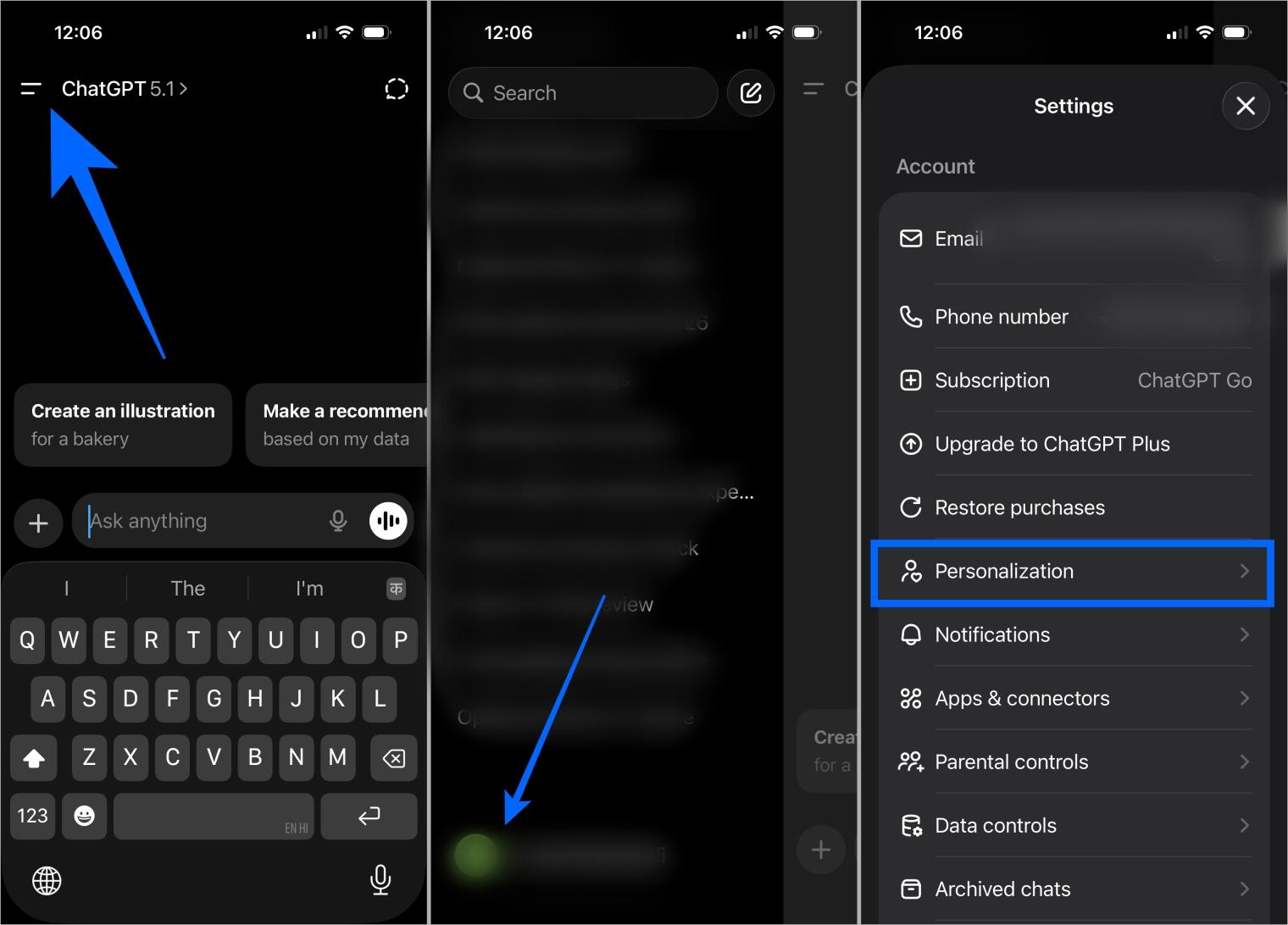
- Use the drop-down next to ChatGPT Personality to choose your preferred personality.
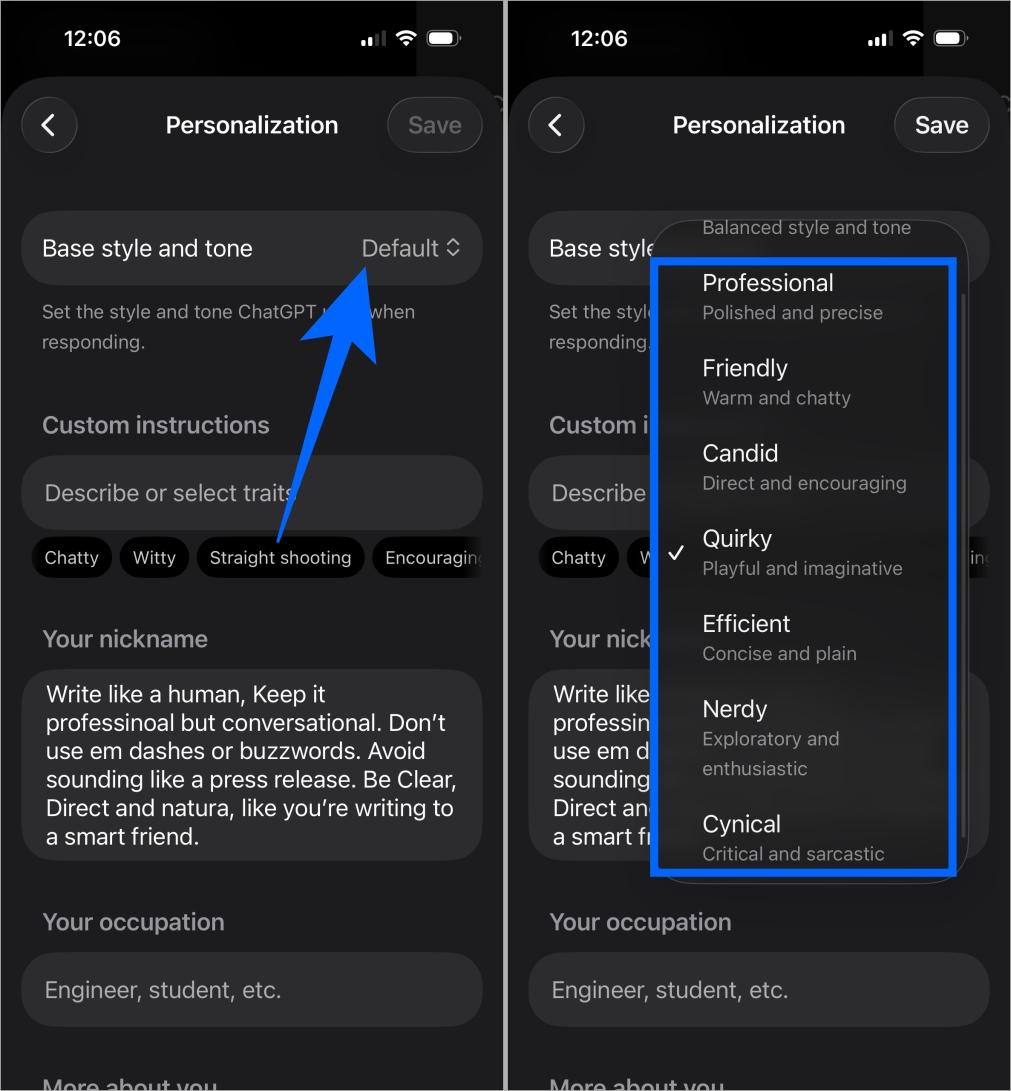
On Desktop:
- Select your profile icon in the bottom left sidebar of ChatGPT.
- Click Personalization.
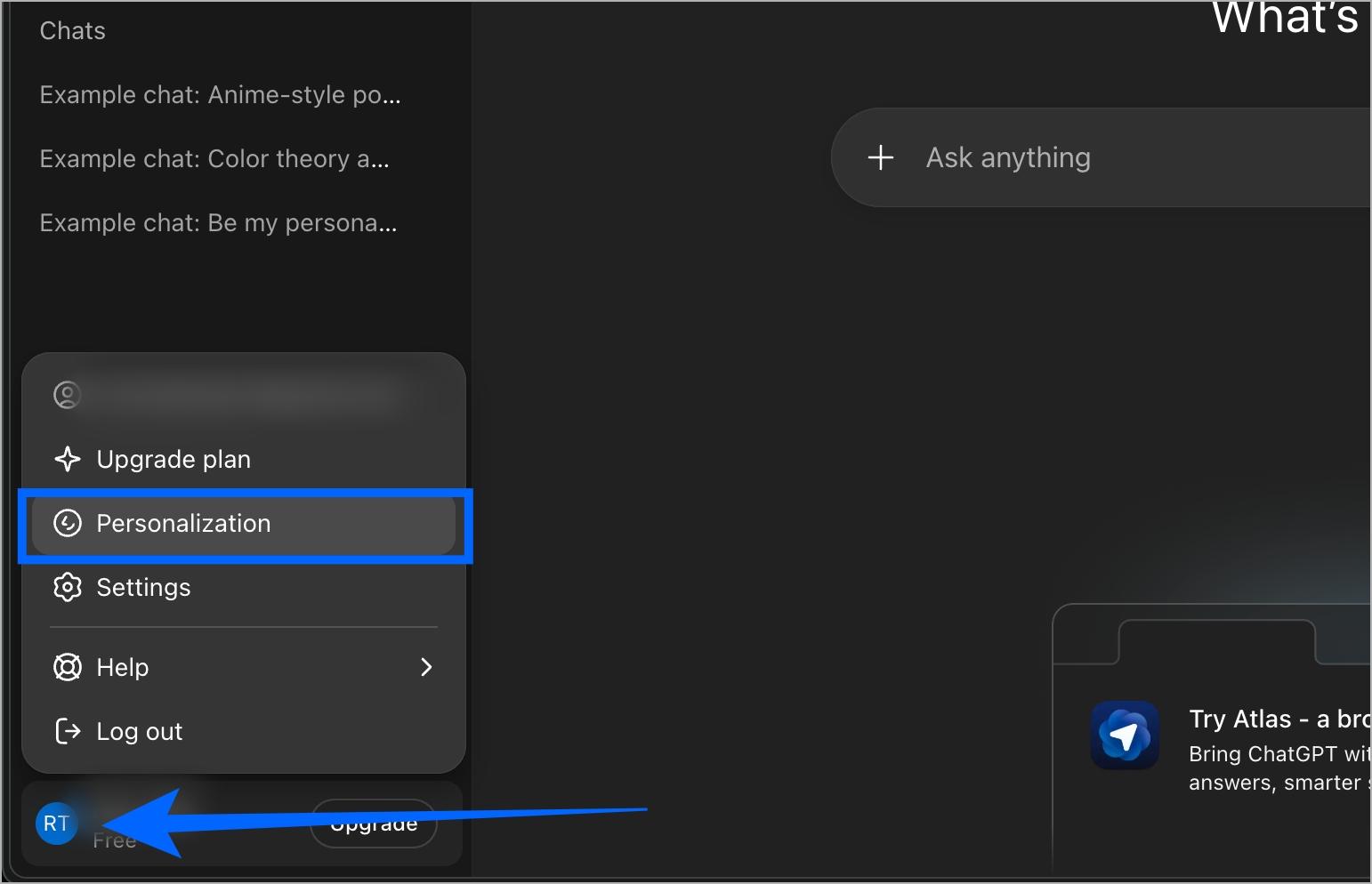
- Use the drop‑down next to Base style and tone to choose the personality you prefer.
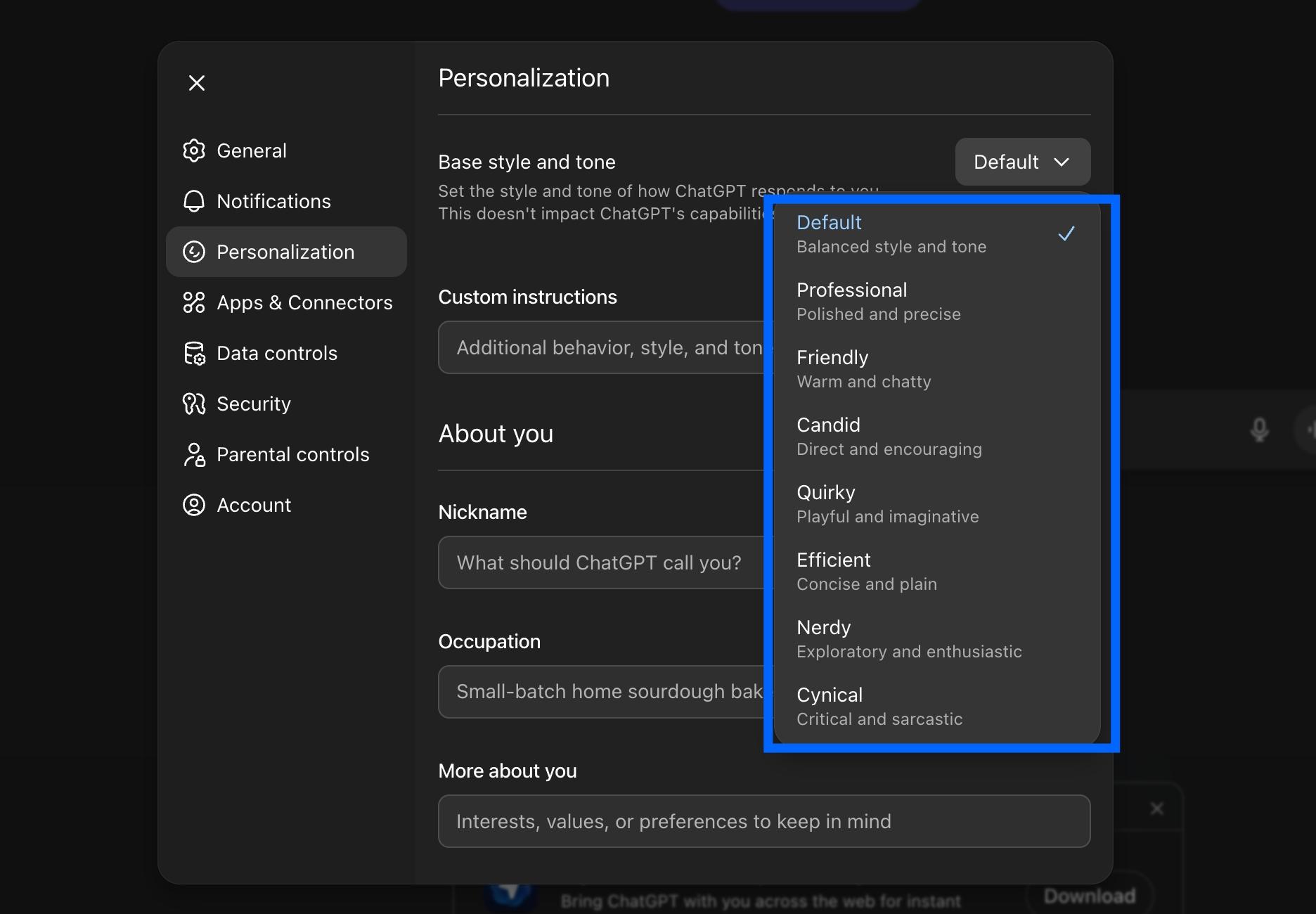
The change applies to all chats, including existing conversations.
Give Custom Instructions
This feature lets you tell ChatGPT exactly how to respond. While you can set the base style and tone with the above settings, you can get much more detailed with this option. You can define writing style, tone, level of detail, whether you want short sentences or step‑by‑step reasoning, emoji preference, humor, and even rules like “never use em‑dashes”. These instructions apply automatically across chats until you change them. Free users can also use this feature.
On Mobile:
- Tap on the menu icon at the top left corner.
- Tap your profile icon at the bottom of the menu.
- Select Personalization.
- In the Custom Instructions text box, describe your ideal response style in your own words, just like talking to a person.
- Tap the checkmark icon at the top right corner.
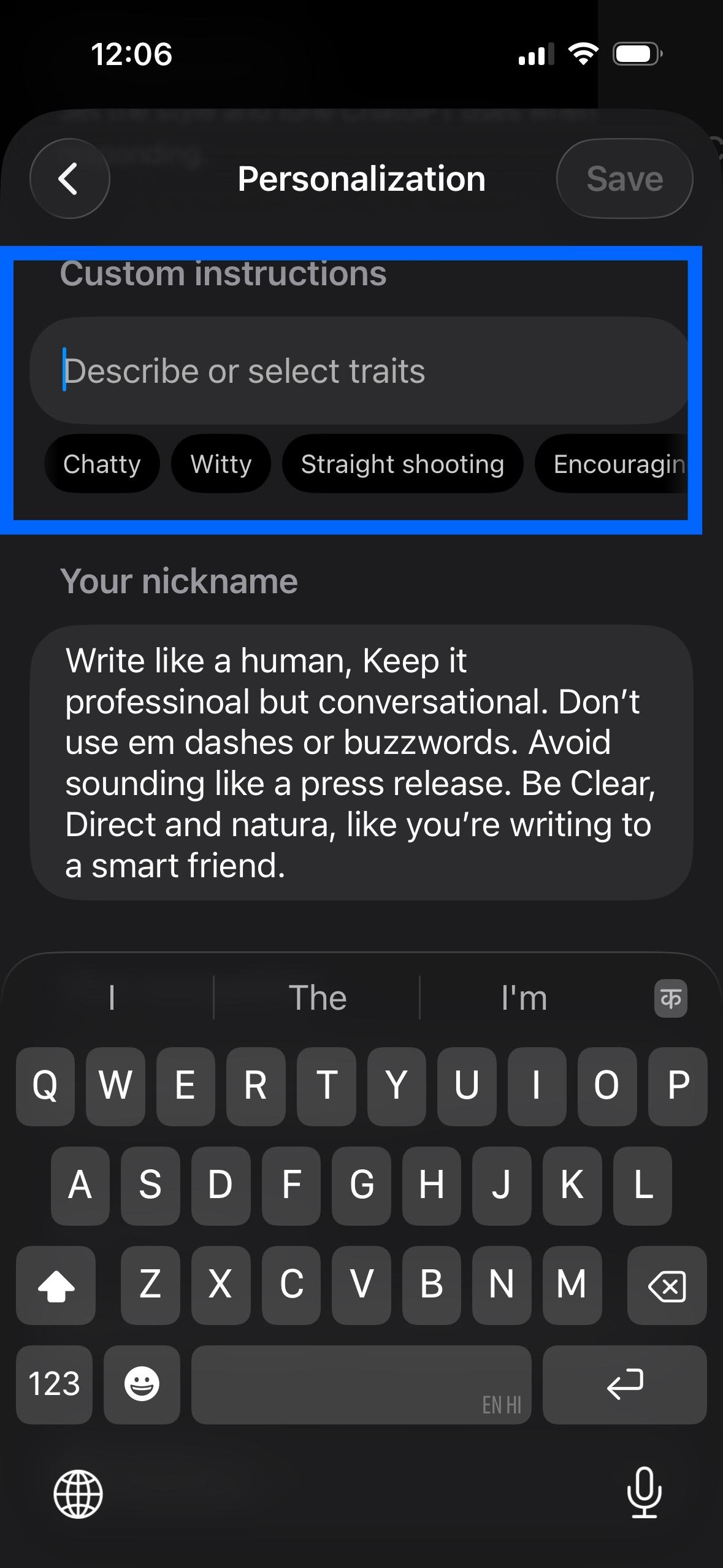
On Desktop:
- Click your profile icon in the bottom left sidebar.
- Select Personalization.
- Open Custom instructions.
- Write the instructions for how ChatGPT should respond.
- Save.
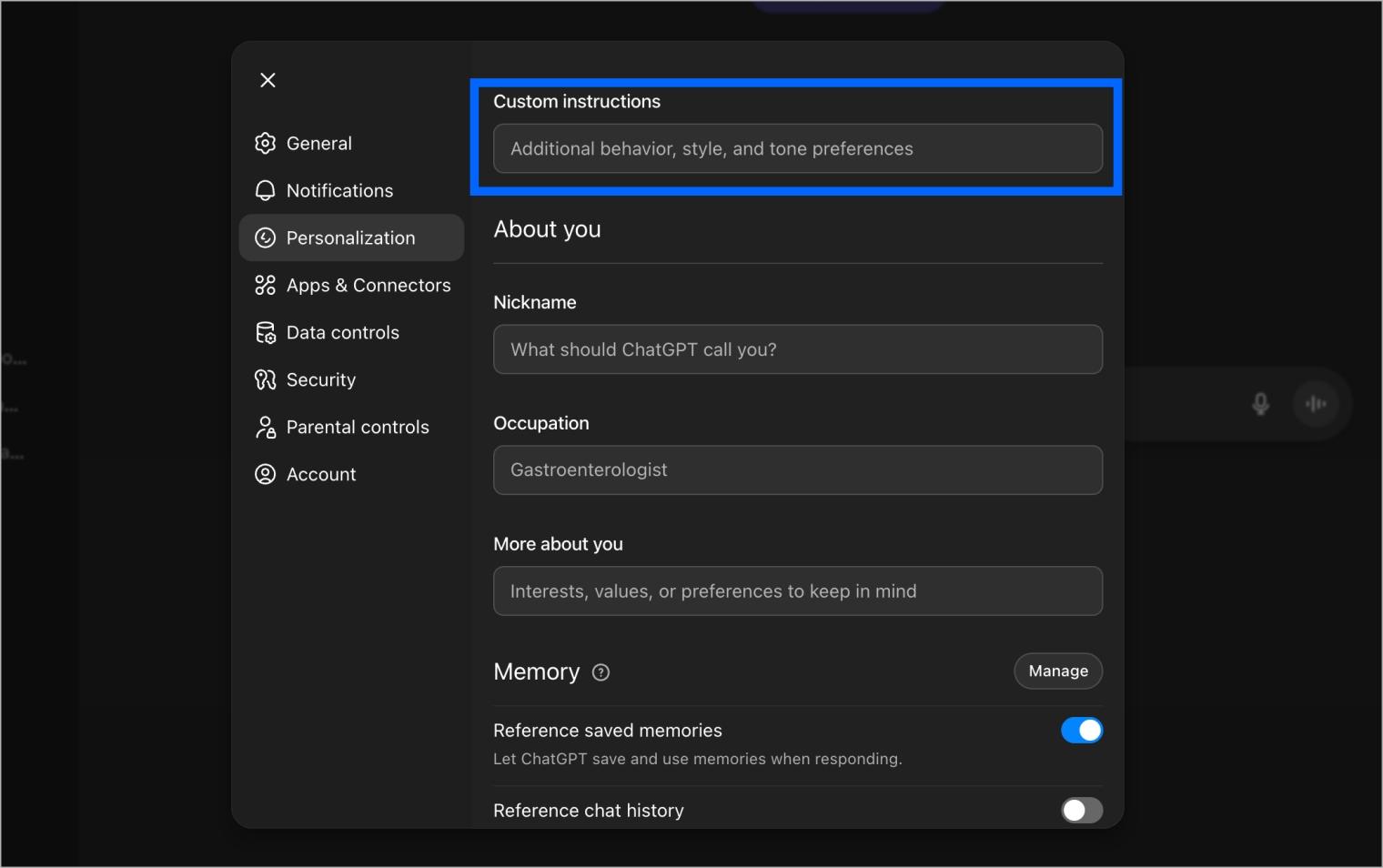
Add More Details About You for Personalized Replies
You can tell ChatGPT about yourself so replies become more relevant. This could include your profession, interests, goals, skill level, and decision-making preferences. For example, a student who prefers budget‑friendly suggestions or a fitness enthusiast with home‑workout limitations will automatically get more relevant answers.
On Mobile:
Open the menu, tap your profile icon, and fill in details under Your nickname, Your occupation, and More about me. Save the changes.
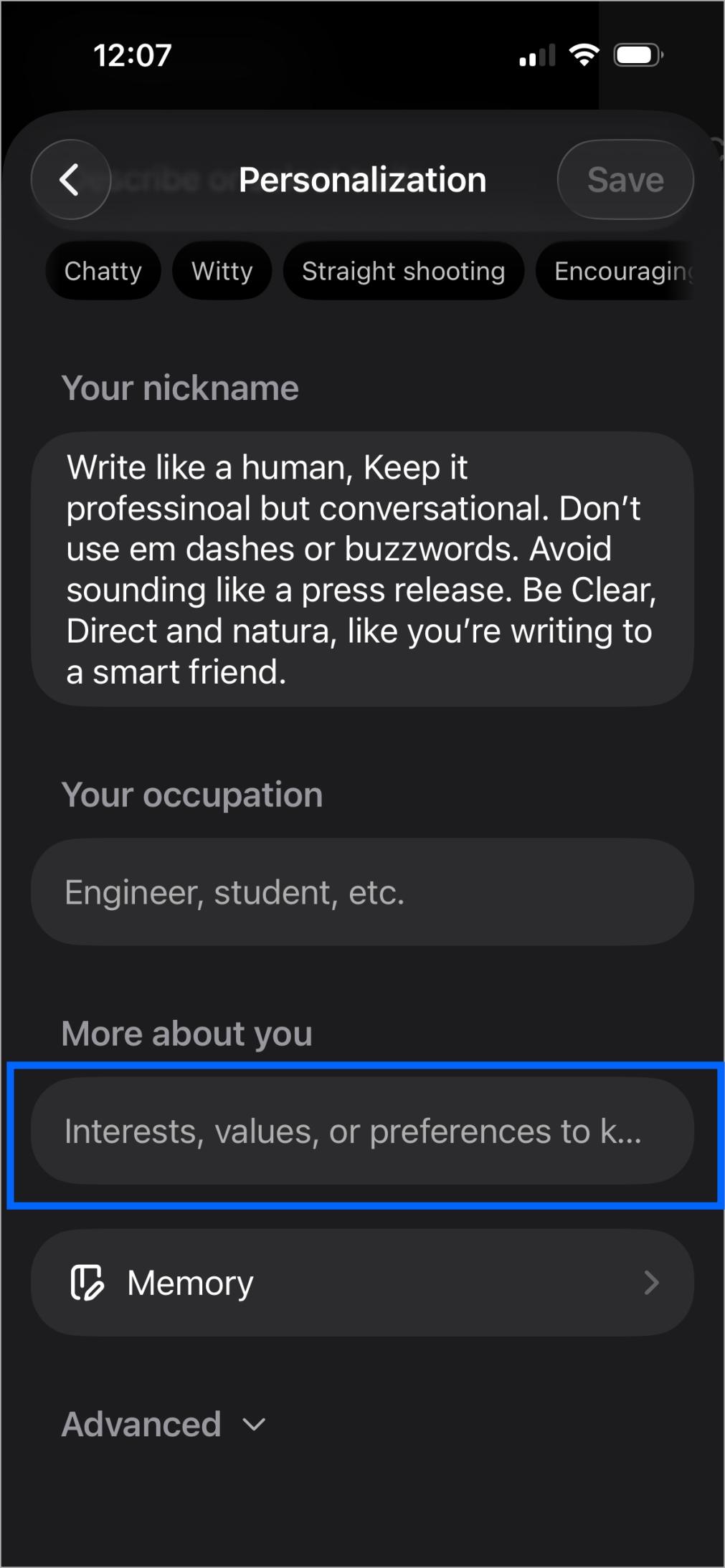
On Desktop:
Open Personalization, go to Custom Instructions, and fill out the About me section with information that helps ChatGPT understand what matters to you.
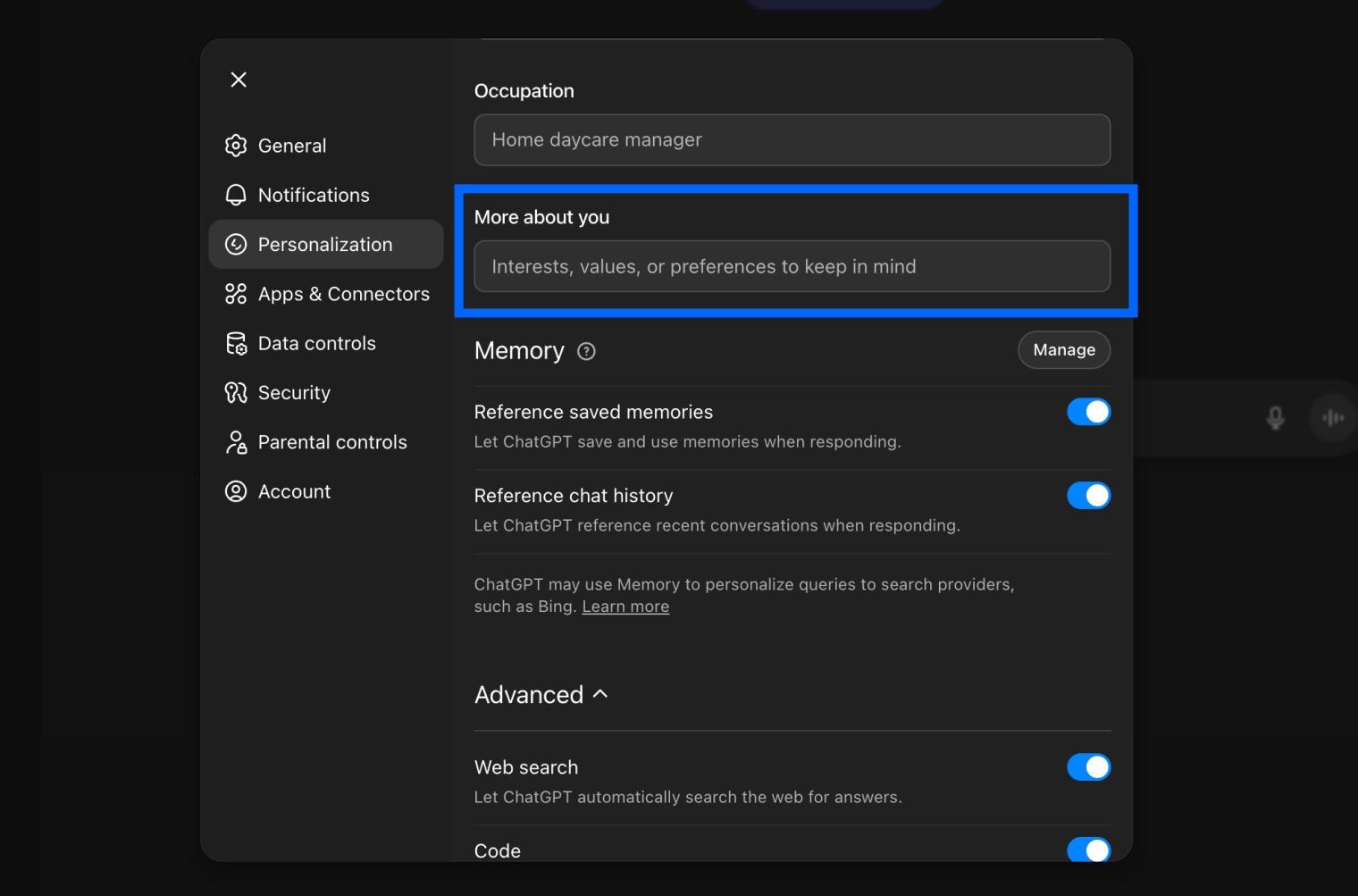
Also Read: How to Change ChatGPT Password
Enable Memory Feature to Let ChatGPT Remember Details
Memory helps ChatGPT remember important details from previous conversations, so you do not have to repeat them. If you mention you are a vegetarian, it will keep that in mind for future restaurant or recipe suggestions. If you say you use Supabase Pro, it will factor that into future project ideas. Memory works across chats and is available to free and paid users, though it is still rolling out in some regions.
On Mobile:
- Tap the menu icon at the top left corner.
- Tap your profile icon and open Personalization.
- Select Memory.
- Enable Reference saved memories and Reference Chat History features.
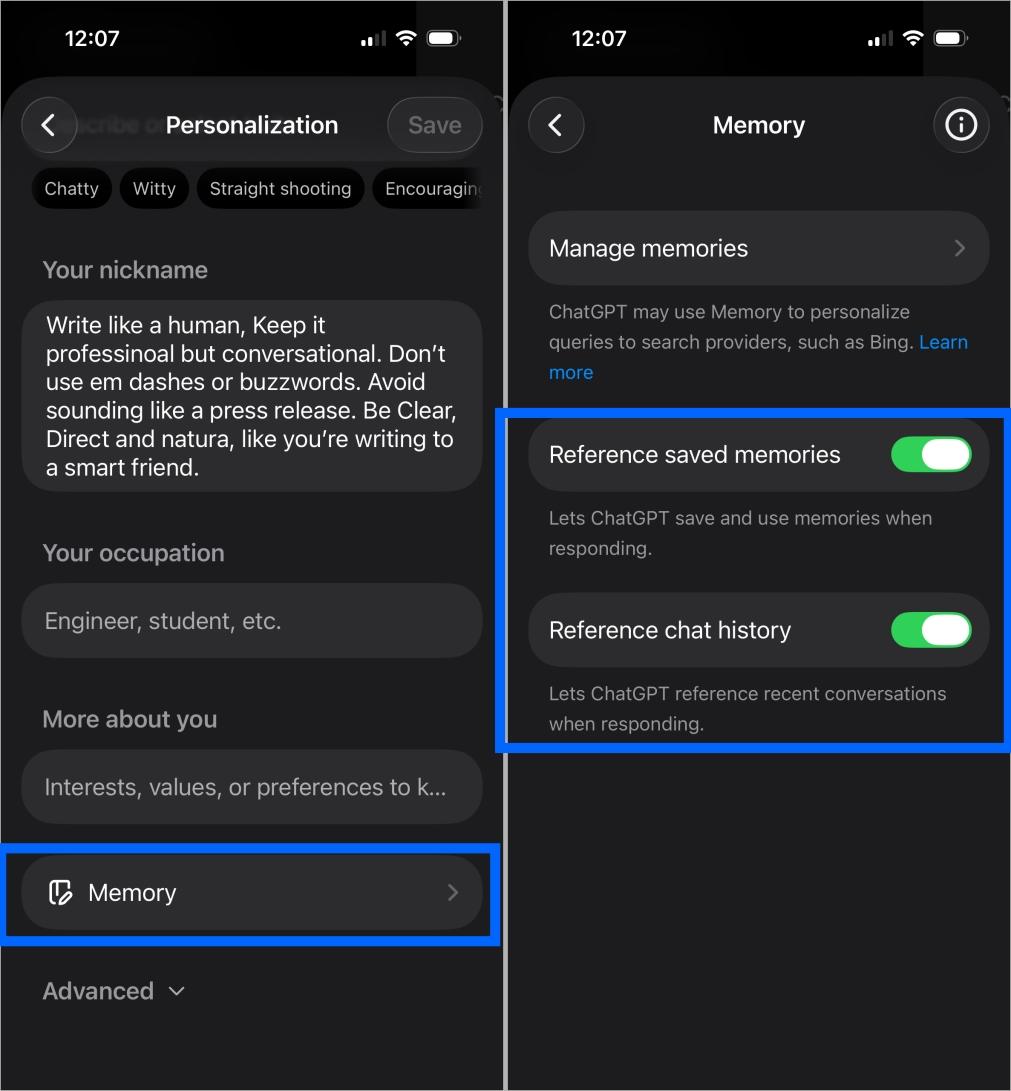
On Desktop:
- Click your profile icon in the bottom left sidebar and open Personalization.
- Select Memory.
- Turn on Reference saved memories and Reference chat history options.
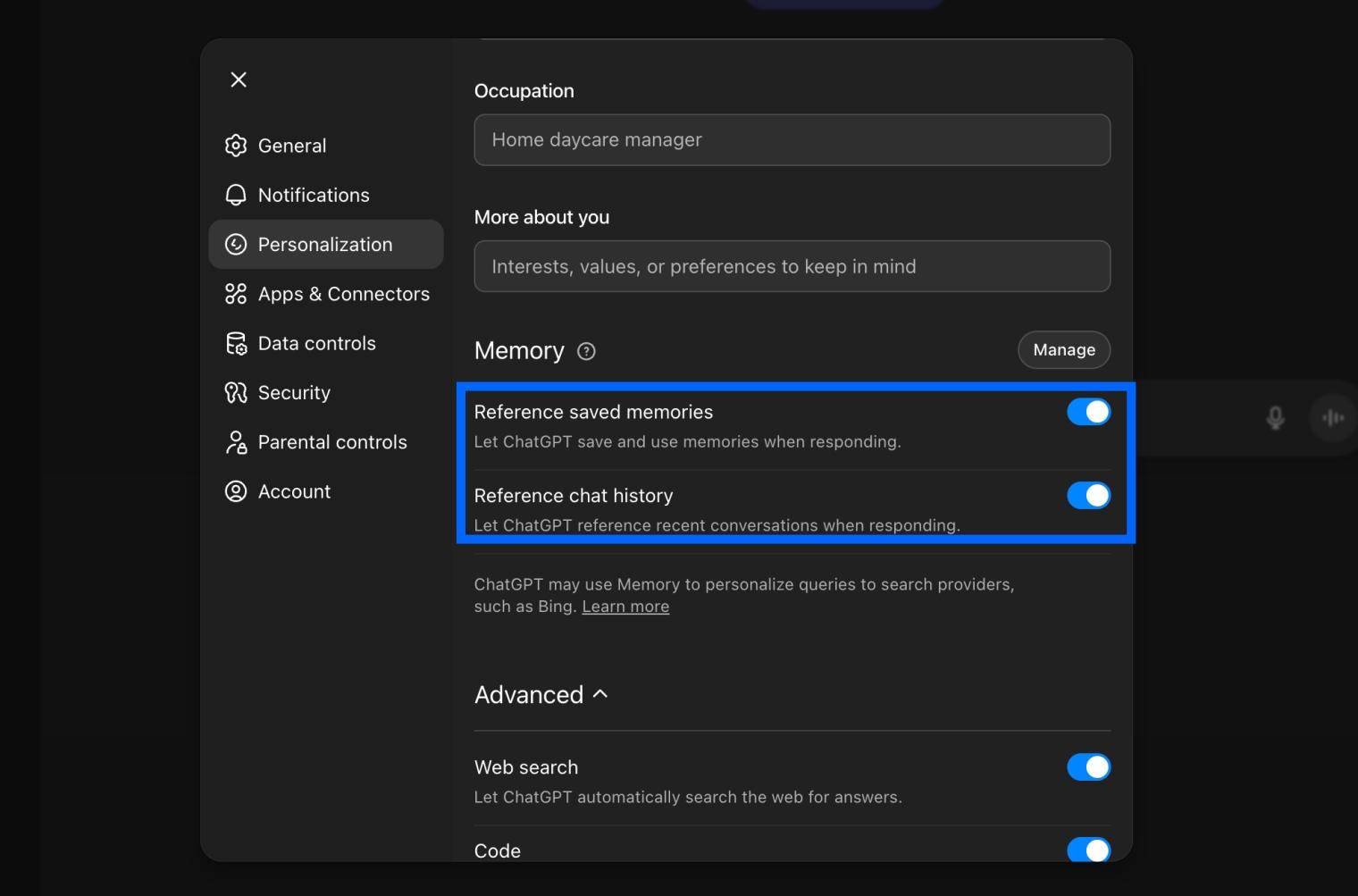
You can use the Manage memories option to delete individual memories or clear everything at once.
Tune ChatGPT Personality With Your Prompts
You can also customize ChatGPT live during the chat without changing settings. Just write how you want it to respond, and the tone changes instantly. For example, you can ask it to talk casually, be more direct, add humor, remove emojis completely, or ask clarifying questions before answering. These requests override any preferences you added in the Personalization settings.
On Mobile and Desktop
- Type a direct message explaining how you want the reply to sound.
- If the reply still feels off, ask ChatGPT to adjust until the tone matches what you want.
- Continue the conversation once the style fits your preference.
Use Temporary Chat When You Want No Personalization
Sometimes you don’t want personalization. Maybe you want neutral responses for school work, you’re sharing ChatGPT with someone else, or you want raw default ChatGPT instead of your customized tone. Temporary chat disables all personalization settings for that session and is available for free and paid users. If you’re setting up ChatGPT for kids or want tighter control over what they can access, consider enabling safety tools such as set up Parental Controls on ChatGPT.
On Mobile:
- Start a new chat from the home screen like any other conversation.
- Toggle Temporary chat at the top so personalization is disabled.
- Ask anything and ChatGPT will ignore your stored preferences.
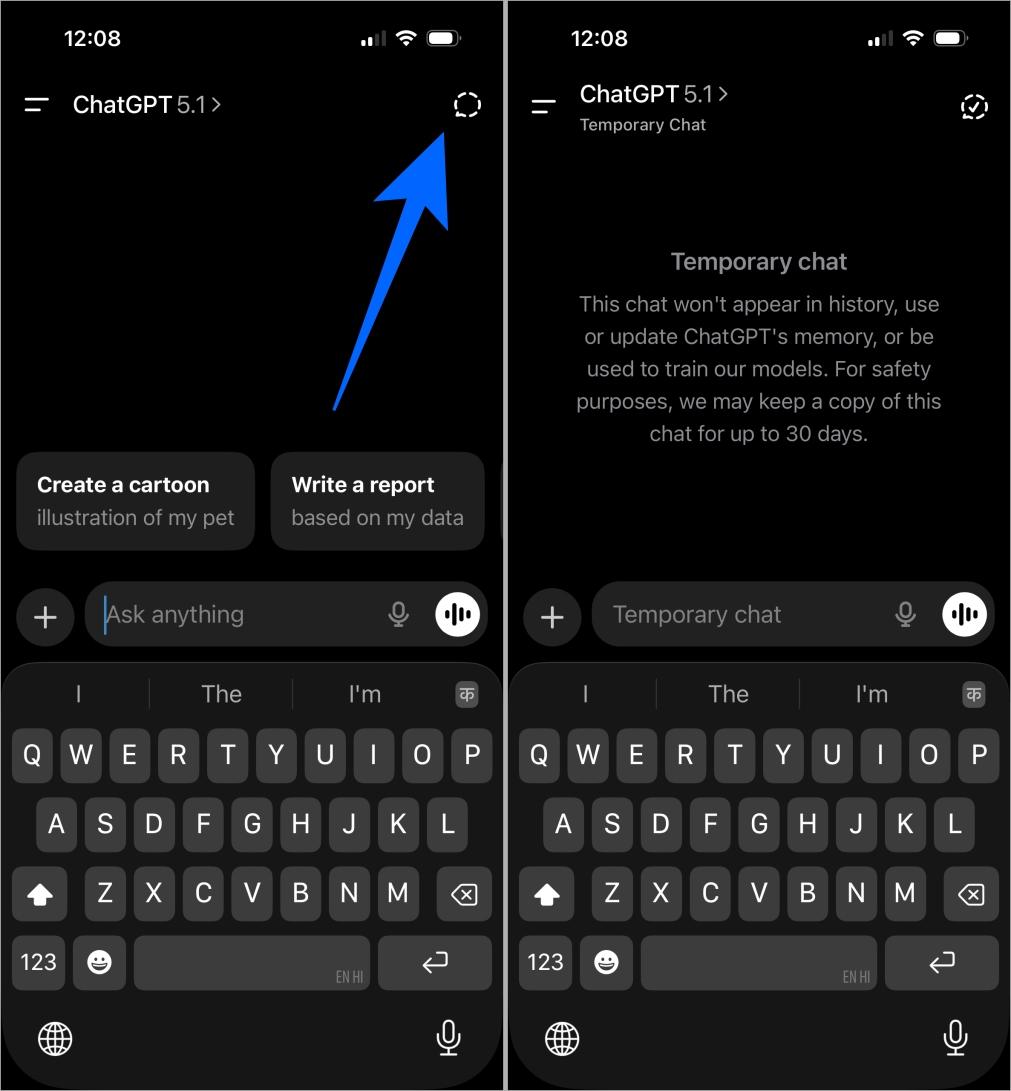
On Desktop:
- Start a new chat from the left sidebar.
- Toggle Temporary chat at the top of the chat window.
- Continue the chat with personalization disabled.
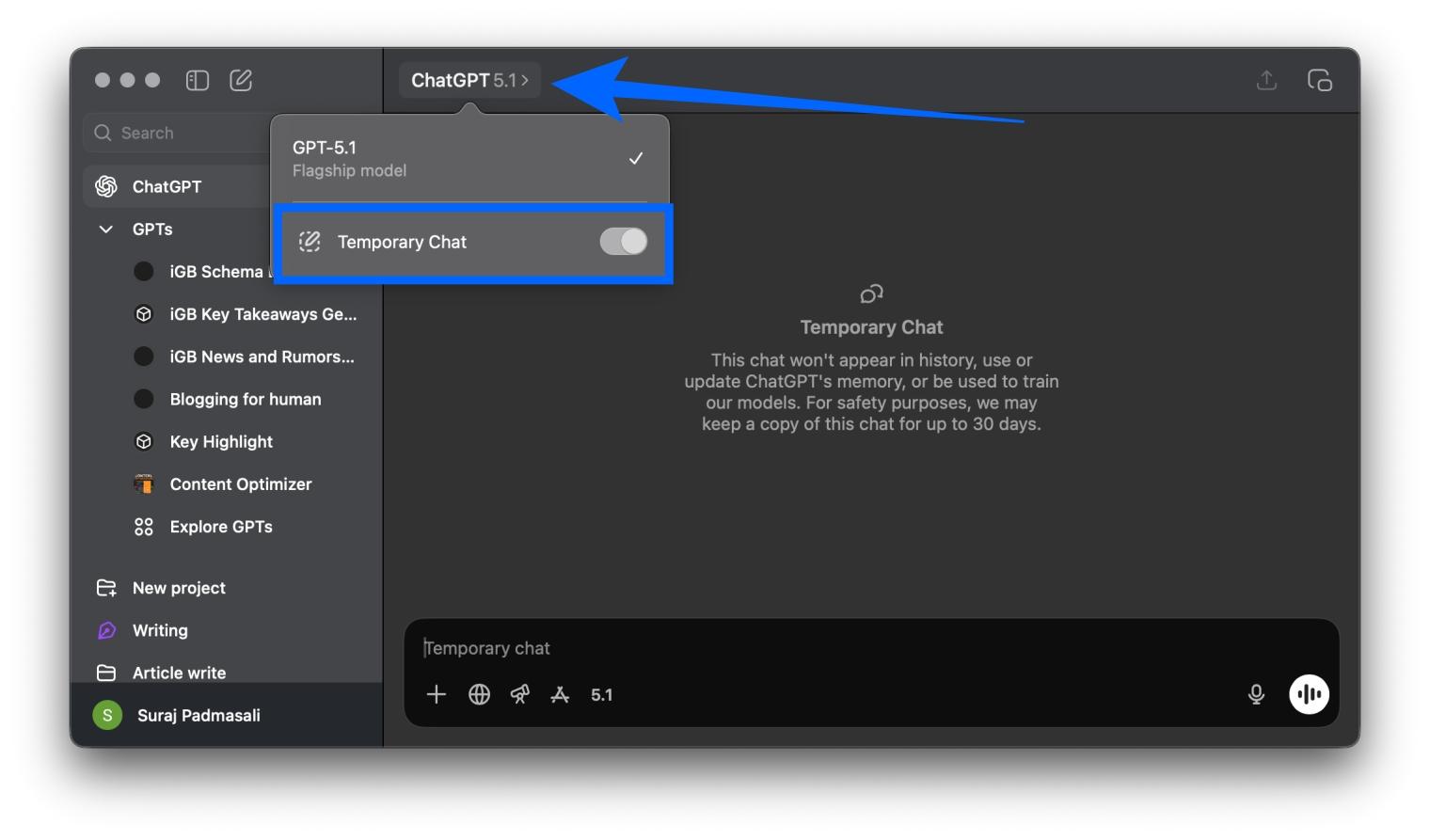
Final Words
Personalizing ChatGPT does not make it smarter; it makes it feel like yours. The more clearly you set your preferences, the more natural the conversation becomes. Instead of correcting the AI every few messages, you get replies that match you from the start.
Whether you want a strict professional assistant, a brainstorming buddy, or an AI that sounds exactly like your own voice, a few minutes of personalization transforms every future chat.


